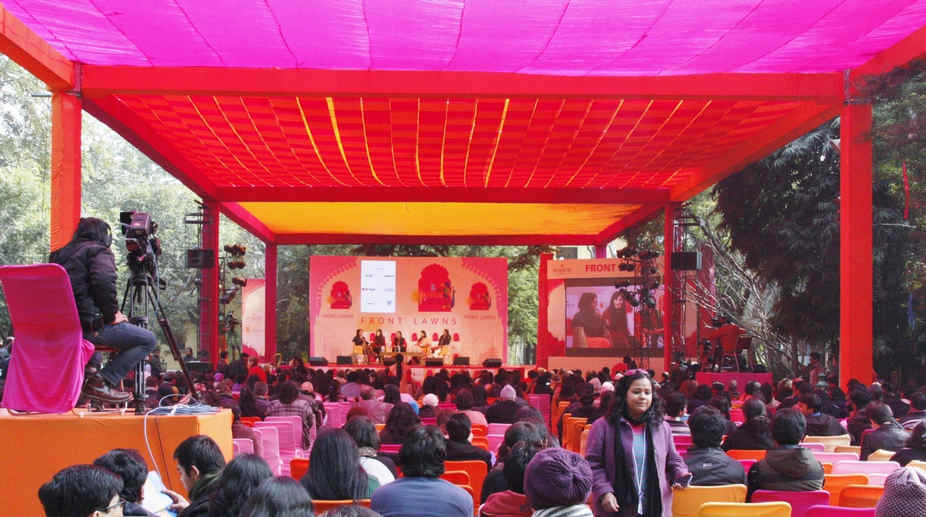Arab Response
The latest proposal by US President Donald Trump to take control of Gaza and resettle its Palestinian population has triggered alarm across the Arab world.

Representative image Photo: IANS
It is a tragic truth of human conditions that the best artistic endeavours come from chaotic, violent conditions — wars, revolutions, displacements and others — and the Arab lands of the Middle East, especially its Levantine part are no different in this respect. But there is one major difference — here it is not only to tell their own story but also preserve their very existence.
And there is no incongruity in all of them using English, instead of Arabic, for the purpose, since it allows them to reach a wider, global audience, they maintained.
Advertisement
At a session titled “Writing the Arab World” at the Jaipur Literature Festival 2018’s ultimate day on Monday, moderator and Palestinian author Susan Abulhawa, at the very outset, noted that the phrase “Arab world” was too widely diverse, for it would imply there was a homogenous entity of this kind and said she would choose it to restrict the scope to the historic “Levant” or the western, Mediterranean part of the Middle East, covering Palestine, Lebanon, Syria, and most of Jordan.
Advertisement
Observing that the parallel tragedies of partition and displacement in India and Palestine in 1947 and 1948 respectively inspired some evocative cultural masterpieces, Palestinian lawyer and author Raja Shehadeh said a further monumental tragedy for his stateless people came after the 1967 Arab-Israeli War, in which the Arabs lost considerable territory and the Palestinians everything.
Henceforth they were denied their very “existence” and had “to construct a nation out of words”, he said, noting that even the word “Palestine” was not allowed to be used by the Israelis and it was not until 2000 did one of his books have it in its title.
Shehadeh went on to cite an excerpt from acclaimed Palestinian poet Mahmoud Darwish’s “In Jerusalem”, which speaks volumes about the Palestinian predicament, “A woman soldier shouted:/Is that you again? Didn’t I kill you?/I said: You killed me a and I forgot, like you, to die.”
Syrian-American lawyer, journalist and author Alia Malek, whose parents had migrated to the US when her mother was pregnant with her, agreed that literature was a key instrument is getting stories which need to be told and are powerful enough to draw her back from her comfortable US existence to Damascus.
She says that her “The Home that was our Country”, which describes the story of her ancestral house, which was once confiscated by the authorities but later returned to them, and her efforts to renovate it, was a great metaphor for the country, which has only just begun restoring itself.
Observing why the Arab region is typically considered bereft of artistic and cultural tradition, popular Lebanese-American painter and writer Rabih Alameddine, who enlivened the discussion with his droll, deadpan remarks, cited the effects of colonialism and a sense of “internalised racism” that still strongly exists in Arab society.
He recounted an anecdote that once in a Beirut bookstore, where he was present at that time, a gorgeously-attired woman came to ask about his book, expressed great interest in getting it, pulled it out and studied it, but then replaced it, saying, in French, that it was by a local.
On the viability of writing as a career, Abulhawa said that there was a sentiment among Palestinians that you need to have a “proper education” and a “proper job” which implies a scientific, technical field.
Shehadeh agreed, recalling his father had told him that if he just became an author, he “would die hungry”. Malek also said this was also true in her society as she and her brother, who had studied economics, were not treated at par with her other two sisters, who were a doctor and an engineer.
Alameddine observed that there was widespread de-funding of humanities in the US too and this could explain why they elected Donald Trump as their President.
Advertisement